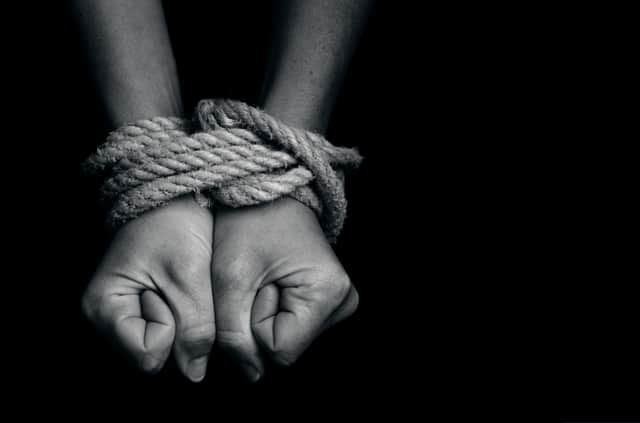More than 19,000 slavery and human trafficking crimes left unsolved by UK police forces since 2015 Modern Slavery Act


Police forces have failed to bring charges for more than 19,000 slavery and trafficking crimes since the 2015 Modern Slavery Act was passed, with suspects facing action in fewer than one in 20 cases.
The landmark legislation was designed to crack down on the “appalling crime” – which ranges from forced prostitution to labour exploitation and domestic servitude – with simplified offences and tougher punishments.
Advertisement
Hide AdAdvertisement
Hide AdBut a JPIMedia investigation has exposed the extent to which perpetrators are escaping justice, with just 4.4% of modern slavery offences recorded by English and Welsh police forces between 2015 and September 2020 resulting in a charge.
In Scotland, 68 out of 475 (14%) human trafficking crimes recorded since the 2015 Human Trafficking (Scotland) Act saw enough evidence gathered for charges to be brought.
'Radical' change
The Human Trafficking Foundation, which brings together charities, public bodies and parliamentarians working to tackle slavery, has now said “radical” change is needed to how UK authorities pursue offenders and support victims.
Home Office figures show police forces in England and Wales have recorded 19,632 offences under the Modern Slavery Act to date. But just 864 of these saw a suspect charged.
The proportion of cases resulting in a charge has fallen every year since 2015 as the volume of offences has increased.
In 2015/16, 23.7% of cases saw charges brought. In 2016/17, the charge rate was 8.3%, in 2017/18, 6.7%, 2018/19, 4%, and in 2019/20, 2.9%.
And figures published since the coronavirus pandemic engulfed the UK reveals the charge rate has plummeted further still, to just 2% between April and September last year.
The figures refer to the period in which an offence outcome was recorded, not when the offence took place. Cases are not recorded until they have been closed or a charge brought.
Advertisement
Hide AdAdvertisement
Hide AdIt means a total of 19,175 cases across Britain have seen no action taken.
Loading....
For the small proportion of cases that make it to court, analysis of Ministry of Justice figures shows just 21.5% end in a conviction, with only 74 successful cases out of 344 court proceedings in England and Wales between 2015 and 2019 where modern slavery was the principal offence.
In Scotland, just nine cases have gone before the courts in the last five years, with three more ongoing. The Scottish Government reports just one confirmed conviction, plus two more where human trafficking was not the main charge, as of 2018/19.
And while police in Northern Ireland failed to respond to a freedom of information request, requests to the Department of Justice show there have been between 19 and 21 human trafficking prosecutions as of September, and between seven and 10 convictions.
Tamara Barnett, director of the Human Trafficking Foundation, said modern slavery cases were often “very, very difficult” to investigate and that a lack of wider support for victims means they are often distrustful of and unwilling to work with police.
But while the Home Office figures show police in England and Wales most commonly cite failure to identify a suspect and victims not supporting action as reasons for not bringing charges (8,358 and 6,664 cases respectively since 2015) there have also been 2,697 cases where a suspect was identified and the victim was on board.
A lack of leadership
Ms Barnett added that “there are definitely better police forces unfortunately” which she put down to a lack of leadership in some constabularies.
While the figures show one police force has never brought a single charge (Gwent) and three have a charge rate of less than 1% (Sussex, Thames Valley and Hertfordshire), Lancashire Constabulary tops the board with a charge rate of